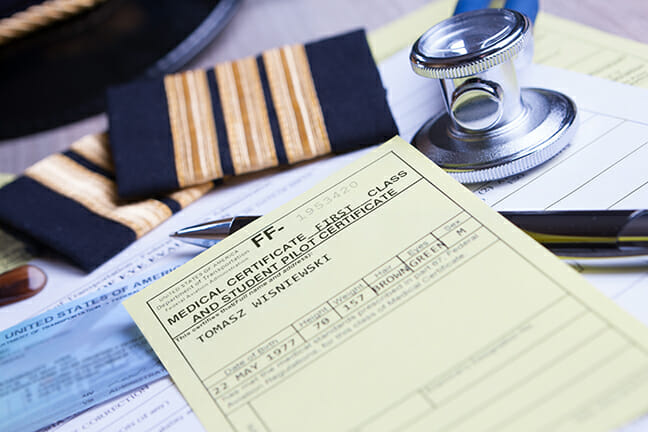
It is crucial for pilots to understand the significance and validity of their airmen certificates. These documents serve a key role in flight operations, ensuring compliance with federal regulatory requirements. While in certain countries pilot licenses expire, FAA pilot certificates do not. Rather, they are subject to currency or recency of experience requirements, which vary if the pilot is carrying passengers onboard. It is the airmen’s responsibility to verify currency requirements, dependent upon the operation to be conducted.
Pilot recency requirements depend upon whether the aircraft will be operating under VFR or IFR. Flights filed under an IFR flight plan require pilots not only to hold an instrument rating, but to comply with the IFR currency requirements. In certain cases, an instrument proficiency check (IPC) may be required to regain currency if sufficient time has lapsed. The tasks to be demonstrated during an IPC are outlined in the Instrument Rating ACS. While certain task groups may be accomplished in an FAA-approved flight training device, others may not.
All airmen are subject to a biannual flight review unless such requirement is waived through acquiring a new rating, certification, or undergoing an FAA-approved recurrent program. Flight reviews can be conducted by any certificated flight instructor, proficiency check airman, FAA safety inspector, or authorized examiner. The FAA has established minimum requirements for flight reviews, consisting of at least one hour of flight training and one hour of ground training. It is important to consider these as simply minimum requirements.
In order to exercise the privileges of a pilot certificate, a valid medical certificate must be held. Medical certificates are issued by FAA-authorized medical examiners and are subject to the operation being conducted. Pilots able to exercise ATP privileges are required to hold first-class medical certificates, while private pilots are only required to obtain third-class medical certificates. The validity of a medical varies based on age and certificate class. When a medical certificate lapses, the privileges of the airman may be degraded to a lower medical class. The medical certificate itself does not expire.
Pilots are legally required to always carry their FAA-issued pilot certificate, medical, and a government-issued photo ID. Logbooks, however, are not required to be in your possession. If operating internationally, additional documentation may be required, such as an FCC Radiotelephone Operators Permit. Keep in mind that all pilots are subject to FAA inspections, as well as inspections from foreign aviation authorities when operating abroad. Failure to comply or provide requested documentation may result in enforcement, certificate action, or fines.
Maintaining the FAA informed with your most current permanent and mailing addresses is a federal requirement. Pilots who change their address must notify the FAA within 30 days. The fastest and most convenient method to accomplish this is through the FAA airman services official online portal (https://www.faa.gov/licenses_certificates/airmen_certification/airmen_services). This portal also allows pilots to request a replacement for a lost certificate, copy of FAA records, among other services. As always, it is imperative to be truthful and accurate when completing any FAA application, whether applying for a medical certificate or a new rating. Any application submitted is considered a permanent record and may be retrieved at any time.
Pilot certificates governed under 14 CFR Part 61 have various requirements under their ruling. It is the pilot’s responsibility to stay up to date with the latest requirements, verify currency prior to each flight, and ensure all documents are in your possession. Be aware that at any time you may be requested to produce documents by an FAA authority. Being proactive will save you a headache, or even worse, potential certificate action.





























































































































